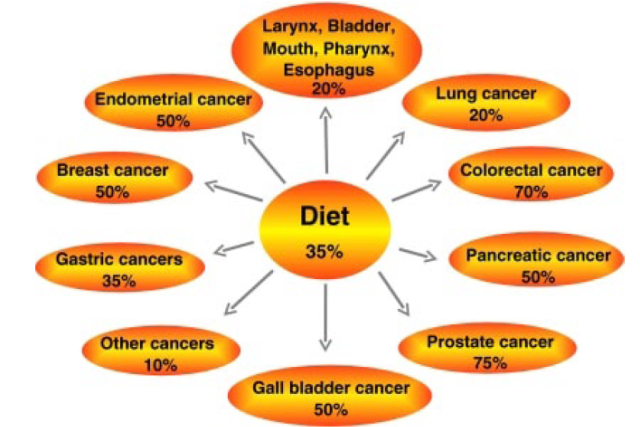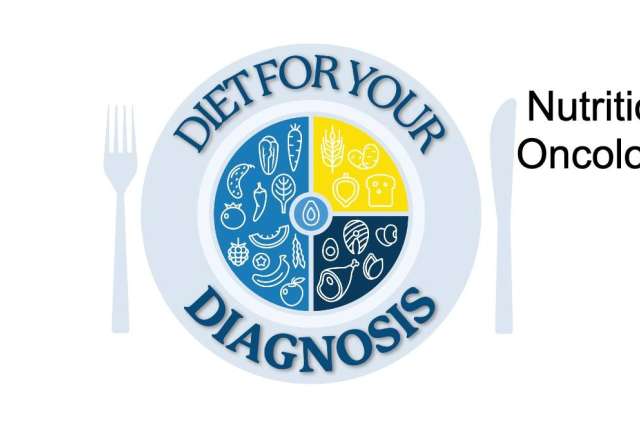Cancer is an aggressive disease that can require aggressive treatment. But the medical and scientific community is working to make cancer manageable, in a way similar to chronic diseases such as diabetes or heart disease.
Oncology is changing with new ways to diagnose and treat cancer. Nutrition can play a role in preventing cancer, supporting the patient during treatment and preventing relapse in cancer survivors, who number in the millions in the U.S.
Nutrition can improve the quality of life for people with cancer as well as aiding in their treatment.
“Nutritional oncology is a new field that is using precision nutrition and precision oncology together to try to optimize the prevention, treatment and survivorship of cancer patients,” said , founding director of the UCLA Center for Human Nutrition.
A by Dr. Heber and UCLA colleagues Zhaoping Li, MD, and , notes that even though research goes back much further, it’s only been within the last 50 years that scientific evidence has shown the many roles nutrition plays in cancer treatment.
According to Dr. Heber, in the 1920s doctors thought that just by nourishing the patient they would be able to cure cancer. But as medicine advanced into the 1970s and 1980s, doctors found they could support the patient nutritionally along with chemotherapy, surgery or radiation.
“What’s happened more recently is that researchers have developed ideas around cancer treatment using the immune system and the immune system is very much dependent on nutrition,” said Dr. Heber.

In recent years, there has been evidence that nutritional strategies working for cancer prevention also work to prevent relapse after cancer treatment.
Nutrition looks different for each patient
Dr. Heber said recommending the same diet for every person with cancer would be impractical. Many variables go into a patient’s diet, such as how many calories they burn per day, how much protein they need, and if there are allergies to certain foods.
The type of cancer and the stage of the cancer also matter when it comes to nutrition.
Nonetheless, Dr. Heber said there are certain nutrients that should be a part of the diet to ensure that a person with cancer is properly nourished.
“There should generally be adequate protein and colorful fruits and vegetables because they carry antioxidants and fiber that help support the immune system and the gastrointestinal tract,” Dr. Heber said.
He advised to always check with your doctor and nutritionist before making changes to your diet.
A plate of a person with cancer should be a colorful one, Dr. Heber says, referring to the many colors of fruits and vegetables, each color representing beneficial antioxidant nutrients that a particular fruit or vegetable contains.
Some natural foods Dr. Heber advises for fighting cancer are:

- Broccoli: It contains a large amount of sulforaphane, a compound that flushes out cancer-causing chemicals such as acrylamide (from fried foods) and carcinogenic chemicals that are produced from beer, wine and hard liquor.
- Tomatoes: They contain lycopene, which has been linked to the prevention of cancer in the prostate, breast and lung, and reducing the risk of gastric cancer.
- Berries (strawberries, raspberries and blackberries): Berries contain ellagic acid that is linked to preventing the growth of cancer cells and improving the efficacy of some cancer drugs.
- Pomegranates: Their anti-inflammatory properties target certain proteins and genes to suppress cancer growth.
Nutrition is just part of the cancer-fighting strategy, however. It should be used as a measure for cancer prevention, or as a component to help patients stay in remission once cancer is successfully treated.
“I’ve seen a lot of bad outcomes when people tried to use nutrition as a cure to cancer,” Dr. Heber stated. “A nutritious diet should be used along with proper treatments in cancer patients, but diet alone absolutely cannot cure cancer.”
Cancer shows strong correlation to diet
Dr. Heber referred to showing that roughly 35% of all cancers were related to diet. According to the American Institute for Cancer Research, 50% of the most common cancers can be prevented by eating well, exercising, not smoking, protecting your skin and getting vaccinated.
A chart constructed in conjunction with Sir Richard Doll’s and Sir Richard Peto’s study shows the approximate role diet plays in the development of certain types of cancers.

“We know that diet and lifestyle have a lot to do with cancer because of the way the tumor interacts with the tissue and cells around it, called the microenvironment,” Dr. Heber said.
The microbiome and its effect on cancer
Dr. Heber explained that 70% of the immune system is in the gastrointestinal tract, which contains the - and the microbiome is very much affected by what we eat.
The microbiome is a community of bacteria, viruses, fungi and other microbial cells living harmoniously within us and driving our metabolism and immune function. When there is dysfunction in the microbiome we start to experience excessive inflammation, which can promote cancer development.
“The microbiome is influenced by your immune system, your diet, your lifestyle and the vitamins and minerals that you take,” Dr. Heber stated. “When you eat, everything that you don’t digest gets digested by the microbiome. The microbiome breaks down fiber and antioxidant micronutrients from fruits, vegetables, and whole grains and these post-biotics circulate to the cells and organs of the body.”
What was once considered only a store of waste products in the colon for excretion is now known to carry out the fermentation of foods to create bioactive substances.
“Studies have proven you can enhance your immunity by changing your diet,” Dr. Heber said.
Cancer prevention and remission
Dr. Heber referenced a in which researchers tracked people who were successfully treated for cancer and later developed a different form of cancer. The study found that lifestyle played a major role in the development of the second cancer.
There is no guarantee that a healthy lifestyle will prevent cancer, but Dr. Heber said there are measures people can take to limit their cancer risk, such as reducing sugar intake, reducing refined carbohydrates, limiting red meat, getting the right amount of protein and increasing fruit and vegetable intake.
“We believe the same nutrition that you would use to prevent cancer in the first place would also be useful in patients who survive cancer,” Dr. Heber said.
Learn more about at UCLA Health.




